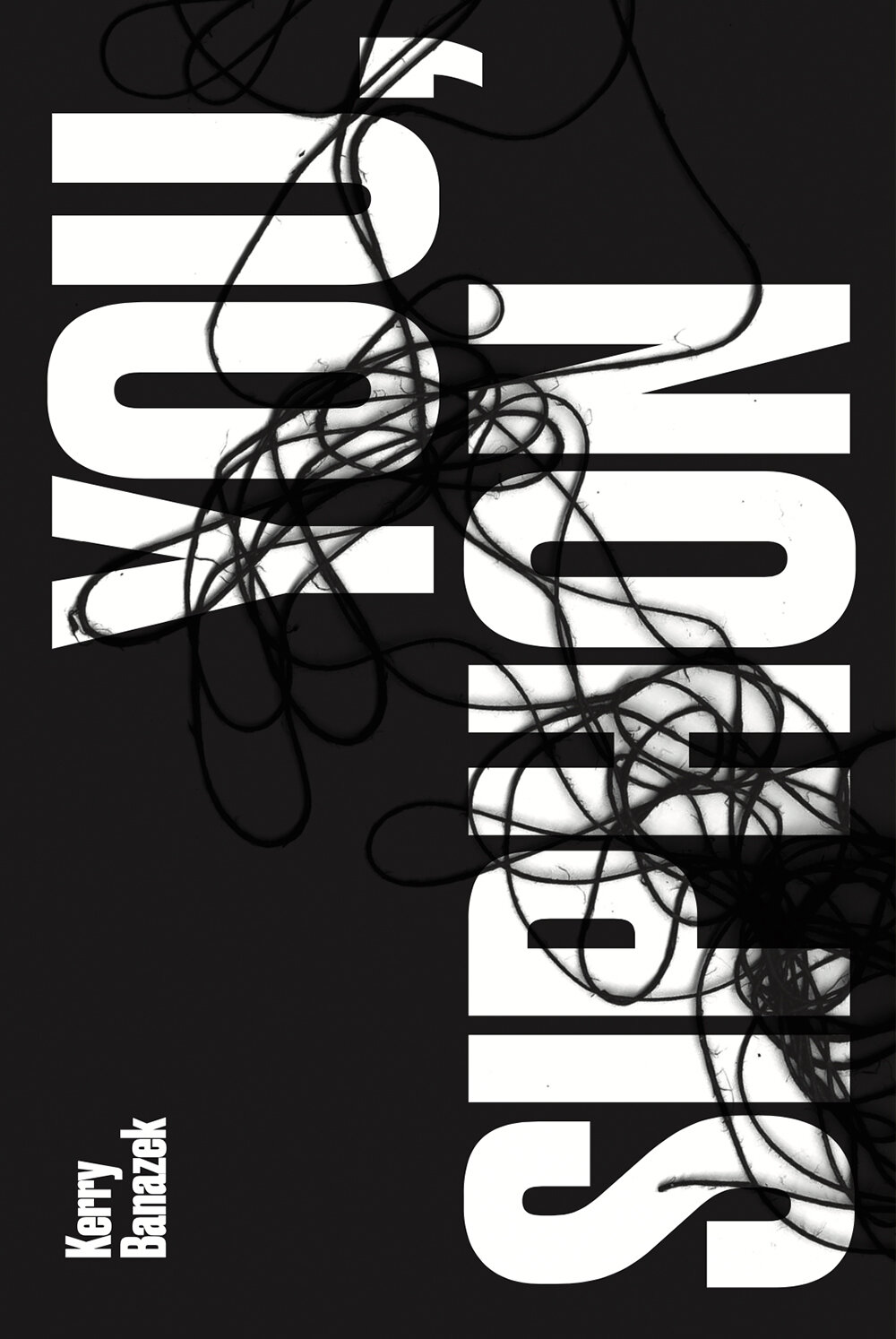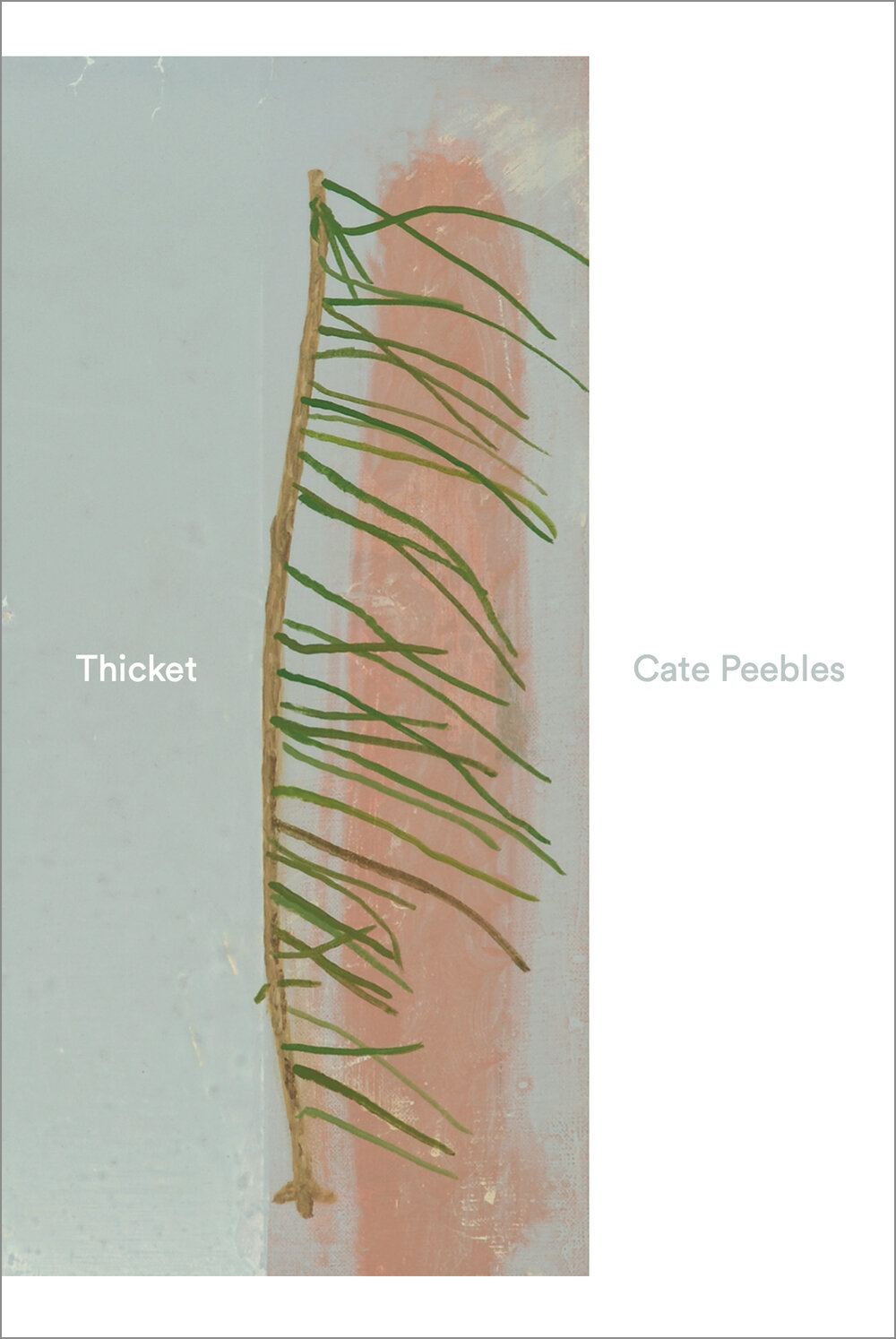You, Siphon by Kerry Banazek
Winner of the 2018 Besmilr Brigham Women Writers Award - selected by Joan Kane & Carolyn Hembree
The poems in Kerry banazek’s You, Siphon move away from narrative and wound as merely lavish entertainment as they seek the structure of delimitation. One poem reminds us that, possibly: “Description is a boxcar full of brand new shoes in boxes.” We enter, thus into the collections’ first phrases, and keep them with us, asking with Banazek’s own rhetorical complexity, how, as readers, we might define a poem’s object.
—Joan Kane
Participant by Linda Russo
Winner of the 2016 Besmilr Brigham Women Writers Award - selected by John Keene & Eleni Sikelianos
"In her new collection, Linda Russo shows how to distill and clarify perception as a method of lyric practice in order to render "a world made sharp." This long poem of observation, edged with philosophy and critique, floats effortlessly across the page, yet anchors in the consciousness like a vital point on a map of a still not fully visible present and future. Participant's speaker worries the division between natural and built environments around her, "into the undertone of the other world," while demonstrating how poetry fuses the line between being the observer and the one who makes language bring the invisible into view."
—John Keene
Common Sense by Jessica Baran
"Funny and sad, the poems in COMMON SENSE sound the gulf between wants and obligations, adolescence and adulthood, love and politics. They speak to the absurdities and desperations of contemporary America, where common sense proves as scarce as its invocations are numerous. These are poems of keen irony and even satire, addressed to the wish fulfillment of presidential elections and the insurgency of teenage lust. They capture the dislocations of common life, the detritus of our days, alert to the strange fictions and contradictions we live within." —Devin Johnston
Sweet Velocity by Rachel Moritz
Winner of the 2015 Besmilr Brigham Women Writers Award - selected by Aaron McCullough and Kristin Prevallet
"Rachel Moritz's poems are a presence, and in being so they reflect all that is absent from them. Absorbed by their language and their mystery, I think of Wallace Stevens who writes about the 'Nothing that is not there and the nothing that is.' As Moritz writes, this is the magic of poetry: 'Something transparent, / we know, / still contains.' …Moritz's poems are exquisitely crafted reminders that our inner self is a 'figment of making.' There is such sweet velocity in following how her figments subtly transform through the lines of her language, which seem to mark and erase at the same time. Exquisite!" —Kirstin Prevallet
Hick Poetics, edited by Shelley Taylor &
Abraham Smith
Hick Poetics is an anthology of contemporary American poets connected to rural landscapes. In addition to poems this book includes short essays by a wide variety of established and emerging writers including Michael Earl Craig, Juliana Sphar, G.C.Waldrep and Mei-mei Berssenbrugge to name a few. There is no other assemblage of rural voices this broad; there is no other collection so fully exploring and celebrating Nowhere, USA.
Temper & Felicity Are Lovers by kathryn l. pringle
Winner of the 2014 Besmilr Brigham Women Writers Award - selected by Brian Blanchfield & Arda Collins
Imagine the most transformative single moment of the Occupy movement or the Not in Our Name protests of the Bush agenda after September 11. Imagine, further, that that quickening moment, thrumming with potential, were itself an entity—transhistorical—which had special perspective on individual experience and the united "body" of a republic, the contractual terms that constitute us. That, approximately, is the speaker of kathryn pringle's Temper & Felicity Are Lovers, a deeply inventive and fascinatingly unsteady American book. —Brian Blanchfield
Thicket by Cate Peebles
Winner of the 2017 Besmilr Brigham Women Writers Award - selected by Andrea Rexilius & Eric Baus
What a masterful, mysterious first book. I love these poems for their totally clear, dream-like permeability. I am particularly blown away by the long poem that anchors the book, 'The Woodlands,' which has an extraordinary, tender wildness: it reminds me of my favorite surrealist novels, while also managing somehow to be deeply personal. I look forward to reading these poems, again and again, with growing admiration and joy. —Matthew Zapruder
Equivalents by Jessica Baran
Winner of the 2012 Besmilr Brigham Women Writers Award - selected by Danielle Pafunda & Prageeta Sharma
These poems are evidence of a mind that emits thought the way a quick-spinning, millisecond pulsar emits radio waves—with devastating precision. They form a record of incisive looking, and of the tumultuous perceptions sight provokes. They are lyric paradoxes, mostly packaged in prose boxes. They imitate the speed of light and yet, if we look up when we're told to, we find we're standing still while everything that can be observed rushes behind us. They are perfect examples of how well the lyric mode can succinctly interrogate existence. They are distinctive, inventive, intrepid, and discerning. Their rebellious intelligence is irrefutable—I found myself saying 'yes' to every word. —Mary Jo Bang
Trench Town Rock by Kamau Brathwaite
Trench Town Rock tells us to ‘See see see until you bline.’ It is document, but also vision, as facts are amassed, faces seen and torn apart, typography assembled, destroyed, melted away. This work by Kamau Brathwaite is our twentieth century Inferno, yet its beauty, rather than lifting the suffering to the level of art, is the way in which it makes terror tangible. This may be the Inferno, but there is no Paradiso to come. —Charles Alexander
Standing Wave by John Taggart
The de-arranging effect of repetition is...reached through communal canting, gospel hymns, mantras, nursery rhymes, Gamelan drumming and jazz such as the driving, dervish solos of John Coltrane and McCoy Tyner …What all this work shares is the repetition of tiny cells gradually permutated into blocks of sound with no fixed destination, reiterated until they gain ritual force: more a way of moving than a state of being. For poet John Taggart, "the goal is still transformation."
—Rochelle Ratner & Karl Young
The Battlefield Where the Moon Says I Love You
by Frank Stanford
This is better than good, it is great. Publish it with a small press, now, as is, no revision. One day it will explode. —Alan Dugan
[This poem] is told from the point of view of a twelve-year-old clairvoyant, Francis Gildart; as one reviewer wrote it reads "as if Huckleberry Finn had been written by Andre Breton." Indeed between the early Anglo-Saxon poem Beowulf and The Battlefield the genetic code goes uninterrupted. No other poem in Western literature maintains continuity to this extreme. —C.D. Wright
The Singing Knives by Frank Stanford
Stanford brings an entirely new aspect to poetry, and newness rides, as it did in Stanford's case, on an intense energy shared between writer and reader, a human connection for which the young
often hunger. —Matthew Henricksen
You by Frank Stanford
When I first encountered Frank Stanford's poetry…
I felt a fine rush of hope and envy I feel occasionally whenever a poet's language pushes me far beyond my own. Unruly and urgent, the poems stood out from the quieter meditations around them as pure dream, possibly nightmare, curiously lit from within. —Leslie Ullman
Conditions Uncertain and Likely to Pass Away
by Frank Stanford
Stanford's fiction resembles that of Carson McCullers and Flannery O'Connor, or the contemporary novelist Harry Crews, what we might loosely call the Southern 'freak' writing...Stanford's characters seem to move in some dark, viscous medium, as if damped, insulated from us and each other. Rather than parables or cartoons, each Stanford tale is like a flicker, stifled spark.... ‘Tale’ connotes the oral, something 'told'; these tales bring us voices in the darkness, echoes in echolessness. —Richard Silberg















